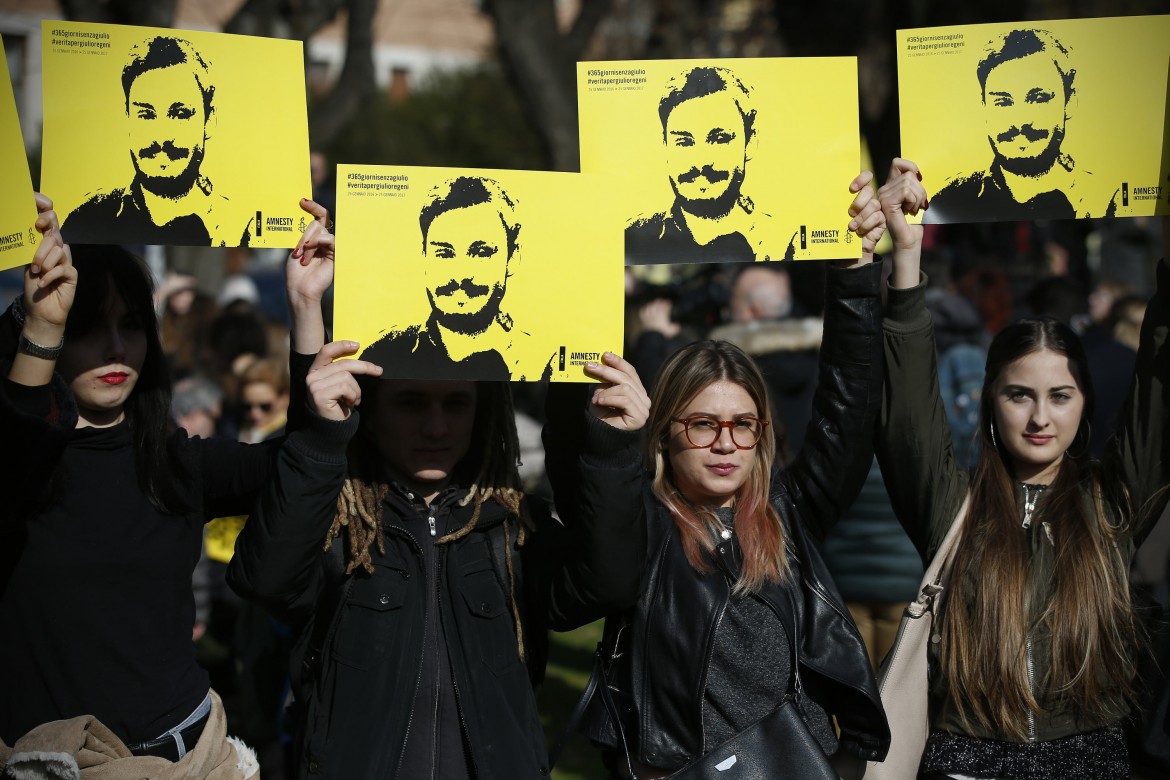Reportage
Italy launches parliamentary inquiry into Giulio Regeni’s death
‘We should have truth and justice, not a commission of inquiry,’ Chamber President Roberto Fico said. But after three years with very little progress, members of parliament celebrated the chance to prove political culpability.

The Joint Commission of Inquiry into the death of Giulio Regeni that was established on Wednesday by the Chamber of Deputies with a near-unanimous vote will have judicial powers, but not the functions that pertain to the judiciary. In other words, it will be able to use the same instruments that state investigators have at their disposal, under the limitations imposed by the need to protect the investigation by the Rome prosecutor’s office that started on Feb. 3, 2016, when the near-unrecognizable body of the young researcher from Friuli was found next to the road between Cairo and Alexandria.
The Commission will not undertake to establish personal and criminal responsibility for the murder, but rather political responsibility. This fell outside the scope of the work already done by prosecutor Sergio Colaiocco and chief prosecutor Giuseppe Pignatone—who will honorably retire within a month’s time—despite their long and highly effective investigative work, in the face of endless obstacles coming from the Egyptian authorities.
After the floor debate on Monday with the few deputies who were still at work during the long weekend, on Wednesday there were 379 votes in favor of establishing the Commission, while the 54 deputies from Forza Italia abstained, after having supported a failed amendment which would have called for focusing the investigation on the “possible links” between the death of the Italian researcher and “the academic research activities he was carrying out.” They wanted to investigate the alleged role of the University of Cambridge and of Regeni’s tutor, Professor Maha Abdel Abdelrahman—no less because, as Pierantonio Zanettin, the author of the FI amendment, explained, “we are concerned about a possible break in relations between Italy and Egypt, which remains an essential bulwark against fundamentalist terrorism.”
As a result of the obstructionist strategy adopted by the Lega, the Commission will have a much smaller budget (€60,000, compared to the €100,000 in the initial proposal) and its mandate will be shorter (12 months, while both the proposal of Erasmo Palazzotto of the Sinistra Italiana and that of Sabrina De Carlo from M5S had called for 18 months).
In the end, the new Commission will consist of 20 deputies appointed by the parliamentary groups in proportion to their numbers in the Chamber, and it will be given one year and €60,000 to “gather all the necessary information to identify those responsible for the death of Giulio Regeni and the circumstances of his murder,” and to “investigate deeds, actions and behaviors, whether by commission or omission, which have represented or still represent obstacles, delays and difficulties for the judicial determination of guilt for Giulio Regeni’s death, also in order to evaluate possible legislative initiatives aimed at overcoming similar impediments, in this case and for the future, and to increase the level of protection for persons engaged in study and research projects abroad, with the aim of preventing risks to their safety and well-being.”
At the end of its 12-month term, the Commission—which will also be able to give reports before the Chamber “during the course of its work, if deemed necessary or appropriate”—will submit a final report. It is hoped that this report will prove more consequential than, for example, the report of the Parliamentary Commission on the death of Stefano Cucchi, which was chaired by then-Senator Ignazio Marino, and which had identified the presence of fresh back fractures on the body of the Roman surveyor as early as in March 2010—to practically no consequence at all.
For his part, Erasmo Palazzotto tried to dispel all skepticism: “Today is a day of celebration, because this commission has great symbolic and political value.” He elaborated on his optimism: “After years of false leads and misinformation, the Parliament has finally made a step toward the reconstruction of the historical and political truth of one of the saddest episodes for our country. With the Commission, Italy will be able to identify and point out the political responsibilities, as well as the motives and circumstances of his murder.”
The President of the Chamber, Roberto Fico, was likewise bullish on the prospects of the Commission, saying that he was “very satisfied” by the approval of the draft law. “Today, after three years, we should have truth and justice, not a commission of inquiry—but unfortunately, since the former have not materialized, we have to go ahead and use every instrument at our disposal.”
At the same time, Fico stressed that “the government, and certainly also vice-Prime Minister Luigi Di Maio,” were working on the possibility of cutting off all trade relationships with Egypt if there are no developments in the case.
In any case, the President of the Chamber wanted to emphasize that this step “is a message to those who think that the Italian state or the Italian Parliament will forget about Giulio Regeni. Instead, we will go further, up to the very end, to get the truth for our boy who was tortured and killed in Egypt.”
Originally published at https://ilmanifesto.it/giulio-regeni-nasce-la-commissione-che-affianca-la-procura/ on 2019-05-01
